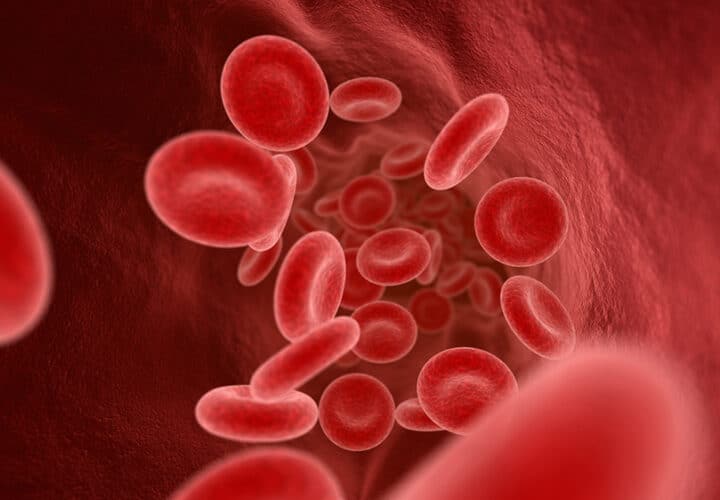Getting a diagnosis for Alzheimer’s can be a huge challenge – the only scans that confirm the presence of the disease (PET or spinal tap) are incredibly expensive and, therefore, not widely available. Scientists believe that early diagnosis is crucial to finding treatments for the disease so they can get people enrolled in clinical trials before the damage to their brains is too significant for drugs to have an effect. According to new research presented at the conference, they might be a step closer to this goal. Researchers at Washington University in St Louis, have a developed a blood test that can confirm the presence of amyloid plaques in the brain. They compared the ratios of types of beta-amyloid in 41 people’s blood with PET scans showing how much beta-amyloid had aggregated in their brains and found a clear match.
Amyloid plaques start developing 15 to 20 years before the symptoms of Alzheimer’s disease start to show so detecting the plaques early on could be crucial in treating the disease before it progresses to an advanced stage. The study was met with cautious optimism by the Alzheimer’s Association but needs to be validated with a larger sample before it can be considered viable. The researchers are currently conducting the same tests with 180 people – watch this space.
Read the full breakdown in the New Scientist here.

How soon should the blood tests for Alzheimer’s take effect? Thanks
Please let me know when this blood test will be available?
Hello
I am a 52 year female in relatively good health. My aunt of my fathers side of the family developed advance Alzheimer in her early 50’s, should I be concerned?
Hi Theresa! Being Patient is an information source only, so we cannot offer diagnoses or instructions. If you have concerns, we encourage you to reach out to your doctor.
Hi, Being Patient
Is this early blood test for Alzheimer’s disease available by a doctor’s visit? I have a loved one who is experiencing moderate memory loss and forgetfulness. She is 65 and truly loved so this information is very crucial. Please respond at your earliest convenience
~Tony
Hello Tony, the blood test is in the R&D phase. It’s is not available to practitioners yet. ~ Thank you.
Given the research indicating the large number if false positives generated by using beta amyloid as the sole criterion for diagnosis, I question how useful this will be. Many people showing beta amyloid plaques do not develop dementia.
Please overlook the typo in first line: “if” should be “of”, but the site would not allow me to correct it.
very interested in knowing any updates of any kind concerning alz. disease
anxious to know more about the latest developments and keeping update with anything new that exists in this area of alz.
My father had dementia in his older years, so I’m interested in new treatments.